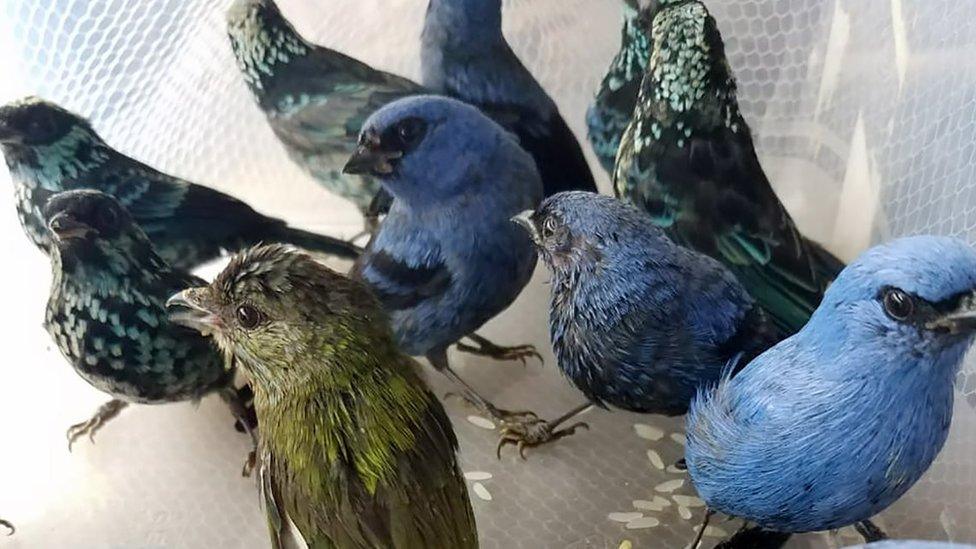Thousands of turtles in Peru saved from trafficking
- Published
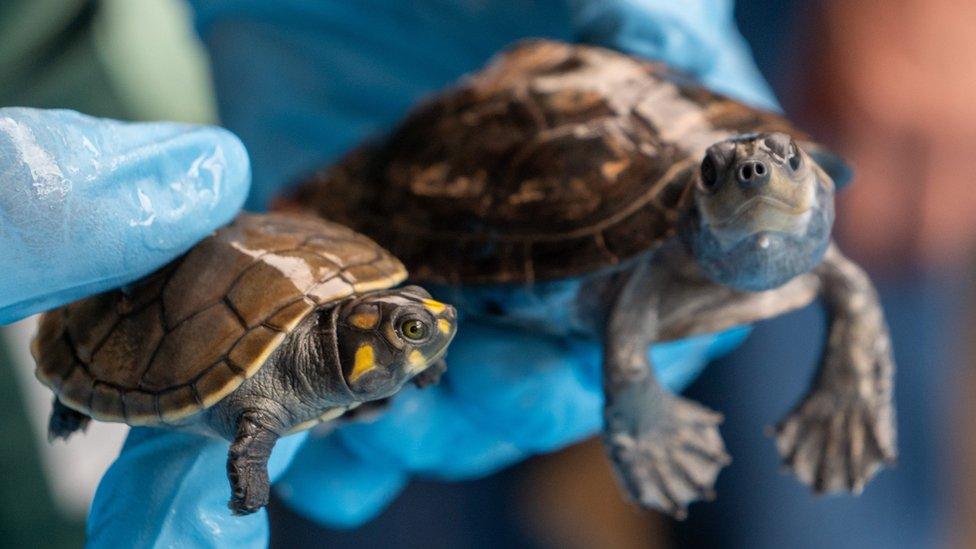
South American river and yellow-spotted river turtles were seized
Customs officials at an airport in the Peruvian capital, Lima, have seized 4,001 live turtles which were due to be trafficked to Indonesia.
The eggs and the meat of the freshwater turtles is considered a delicacy in some parts of the world.
Officials found that the export papers for the shipment were not in order, wrongly identifying the species of some of the animals and the age of others.
The turtles have been taken to an authorised breeding centre in Lima.
They will be cared for at the centre until their final destination is decided, officials said.
They added that so far none of the reptiles had died.
Environmental officers said more than 400 of the animals were South American river turtles (Podocnemis expansa), whose "legal origin could not be determined".
The South American river turtle was not considered threatened by the International Union of Conservation of Nature (IUCN) back in 1996 when its status was assessed. But an IUCN working group has since recommended that due to the species' falling numbers it should be reclassified as "critically endangered".
The remaining reptiles are Taricaya turtles (Podocnemis unifilis), also known as yellow-spotted river turtles, but their estimated age did not match that given on the paperwork.
Peru's National Forestry and Wildlife Service (Serfor) said an export licence had been granted for Taricaya turtles ranging in age between one and three years, but the reptiles seized were much younger.
Serfor rescues thousands of animals from illegal traffickers each year.
It says that monkeys, turtles and parrots are among the most popular animals for traffickers.
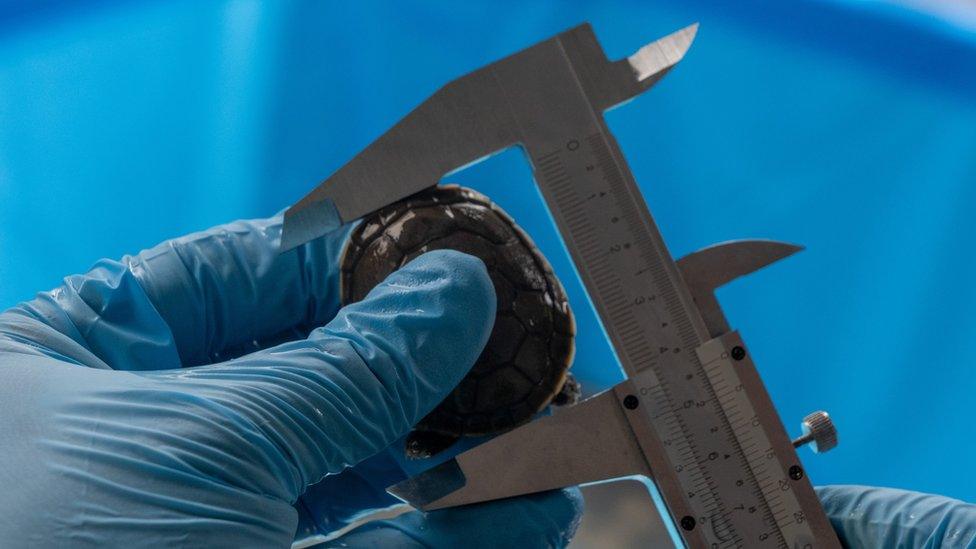
The reptiles were measured before being taken to a suitable reptile centre in Lima
Related topics
- Published17 September 2022
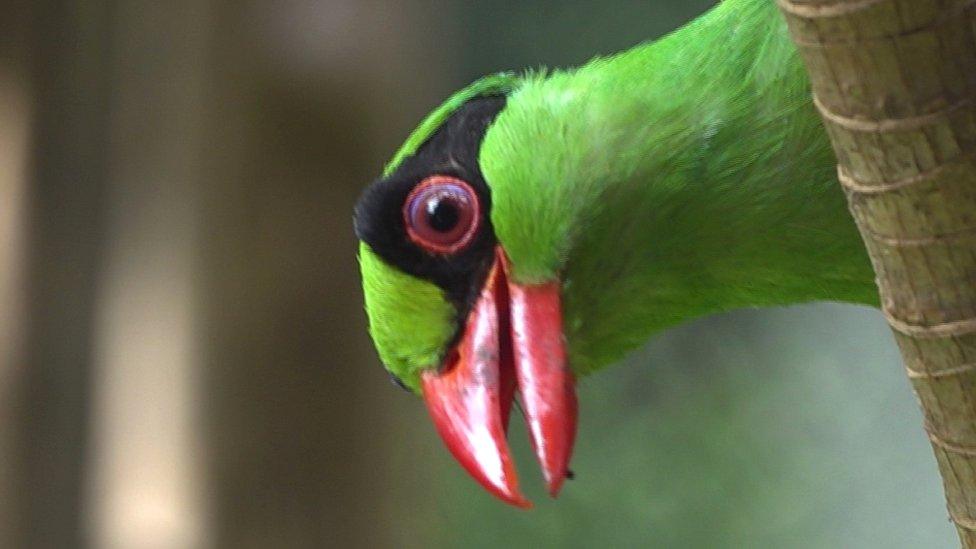
- Published9 March 2022
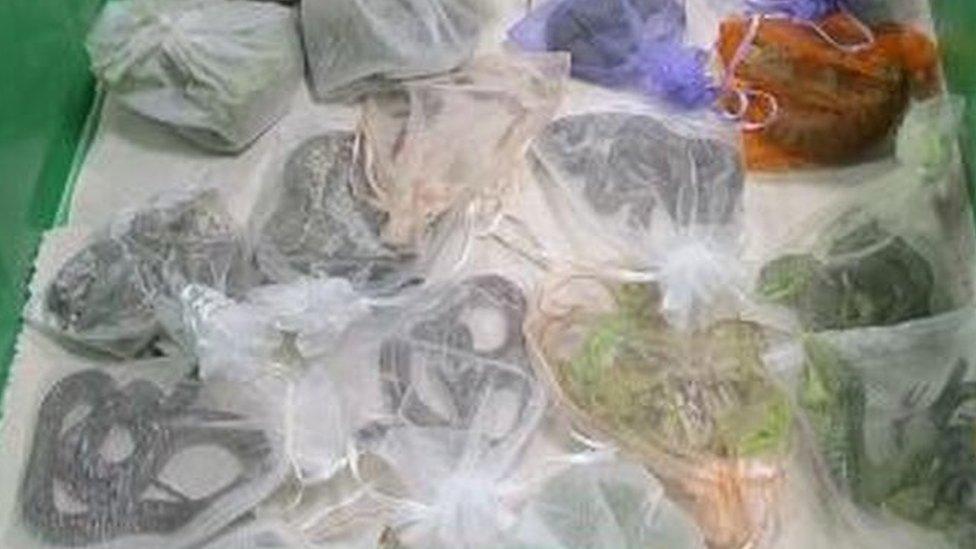
- Published16 January 2020
